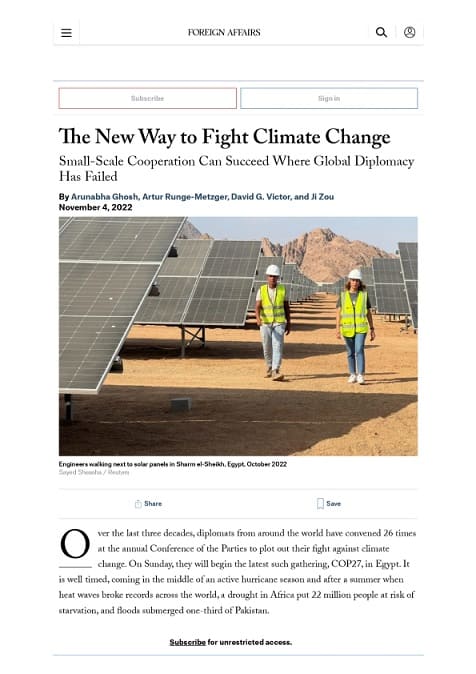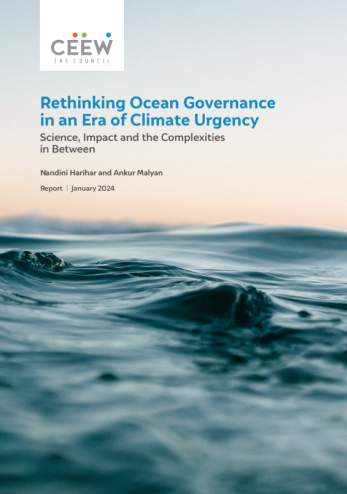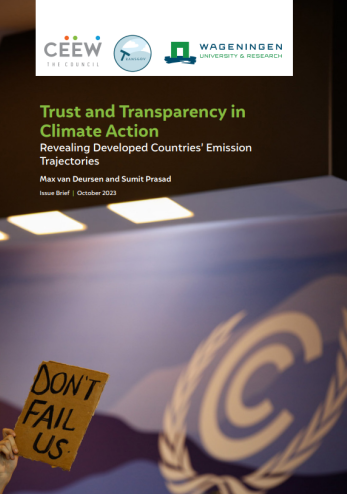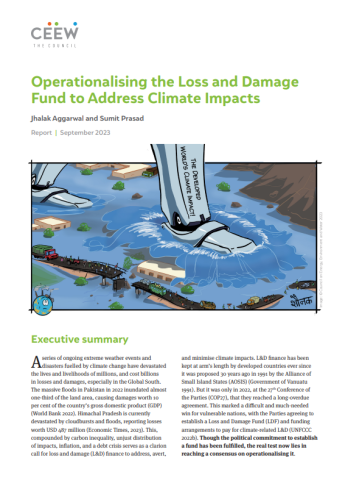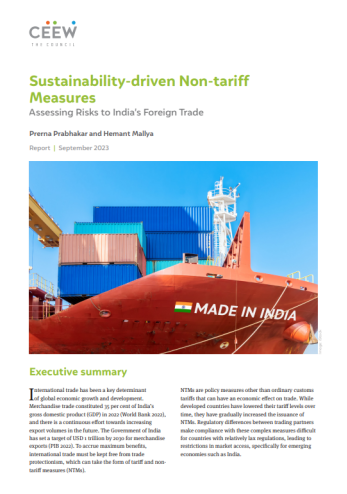Paper
The New Way to Fight Climate Change
Small-Scale Cooperation Can Succeed Where Global Diplomacy Has Failed
Arunabha Ghosh, Artur Runge-Metzger, David G. Victor, and Ji Zou
November 2022 | International Cooperation
Suggested Citation: Ghosh, Arunabha, Artur Runge-Metzger, David G. Victor, and Ji Zou. 2022. The New Way to Fight Climate Change: Small-Scale Cooperation Can Succeed Where Global Diplomacy Has Failed. Foreign Affairs
Overview
This article, published in Foreign Affairs magazine, highlights how a new theory of climate collaboration is taking root ahead of COP27 in Egypt. Although global diplomacy and larger consensus still have an important role to play in finance and emission targets, this approach focuses, sector by sector, on the technologies, businesses, and policies that are essential to creating a cleaner economy. The article focuses on how each industry, from airlines to agriculture and steel to coal, will need their own unique and nuanced strategies to decarbonise—the fight against climate change can’t be one-size-fits-all and COP needs to reflect that.
Key Highlights:
- To make COP27 a success, the industry-focused coalitions doing the most should host events focused on credibility, demonstrated action, and system transformation. Progress on deep decarbonisation is best made through individual sectors.
- Industrial transformation is risky. To develop green technologies, policymakers must not only find ways to identify promising new ideas and actors but also create portfolios to diversify the investment risk. Energy production and agriculture should be key focus.
- Industrial policies in India, Japan, the United States, Europe are backing experiments to mass produce, ship, and market carbon-free hydrogen. What the world needs next is an active effort to assess which of these approaches are most promising and coordinate on rules and standards.
- The most important target for aggressive regulation is coal. The best programs include not just funding for coal alternatives but also helping the communities hit hard by the shift.
- Changes in agriculture won’t be easy to make, but there’s a solution—carve the sector into smaller units to make it politically and administratively tractable.
- In the aftermath of World War II, political leaders worked together to transform the way major powers interacted. To confront climate change, the international community must again rethink how diplomacy and institutions can foster cooperation.
What matters most in COP27 Egypt won’t be big-ticket multilateral diplomacy but, the practical, sideline convenings of governments and firms willing and able to force change.




